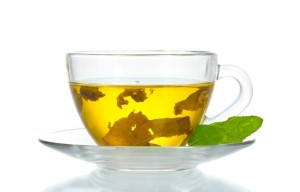Performance anxiety.. We’ve all probably experienced it at some point in our lives. At first your heart feels like it’s pounding through your chest, then your palms become sweaty and it feels like someone turned the furnace way, way up, and finally, if severe enough, your mind goes blank. It may have happened before a critical test during college, a big sporting event, or right before an important speech. If it consistently impairs performance or causes psychological problems, a visit to the physician is probably most appropriate. But before the physician prescribes you an anti-depressant like Zoloft, a benzodiazepine like Xanax, or a beta blocker like Inderal, give l-theanine a try.
A study just published in the Journal of Physiological Anthropology put l-theanine to the test. Researchers had subjects perform a mentally stressful task (an arithmetic quiz and a visual test) as well as a physically stressful event (placing the subject’s hand in cold water). A group of subjects categorized as the “high response” group had their systolic blood pressure jump anywhere from 9-39mm Hg during the placebo treatment. When those very same subjects took 200mg of l-theanine instead of the placebo, the blood pressure elevations were “statistically significantly” reduced. L-theanine not only helped reduce the rise in blood pressure from the mentally stressful task, but also appeared to subjectively reduce the anxiety associated with the tasks according to the subjects’ self-reported questionnaire.
So exactly how does it help alleviate performance anxiety? That’s a great question, and there’s not a definitive answer for it. Studies have suggested it affects the concentrations of dopamine and serotonin in the brain (two neurotransmitters that are also affected by anti-depressants), increases alpha brain wave activity (which usually corresponds to a relaxed yet alert state), and/or inhibits cortical neuron excitation (which usually results in decreased heart rate and blood pressure). One, all, or none of those mechanisms may be responsible. As they continue to study l-theanine (and they will because now they are looking at it for cancer patients), I’m sure they’ll find a few other possible mechanisms of action.
How much should you take? Most studies have used between 100-200mg of l-theanine. Take it about 45 minutes before your performance. L-theanine has minimal drug interactions and side effects. And by the way, if l-theanine sounds familiar, you must be tea drinker. It’s one of the active ingredients in tea that gives it its calming effect.
As always, consult your physician before you take any herbal, natural, OTC, or prescription medication.
http://www.jphysiolanthropol.com/content/31/1/28/abstract





Speak Your Mind